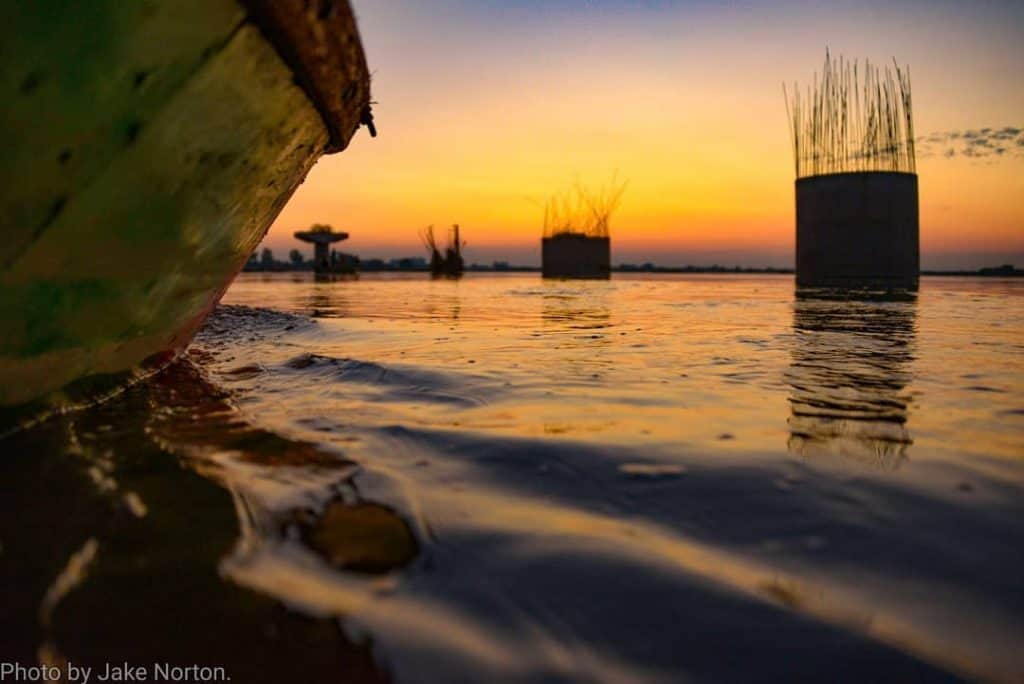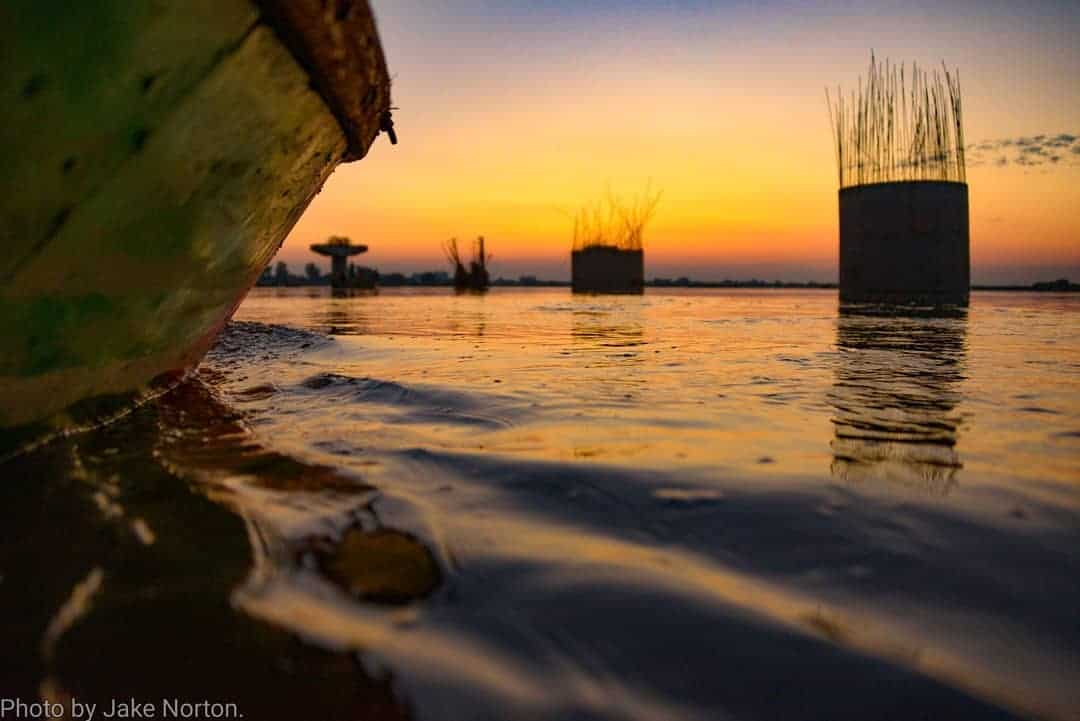In 1895, bacteriologist Ernest Hanbury Hankin was working on the Ganges and Yamuna Rivers in India, and was to see no evidence of major cholera outbreaks amongst the populace even when millions flocked to bathe in the rivers during festivals.

His later tests found something mysterious, especially in Ganges water: in standard Ganga jal, cholera was killed off in less than 3 hours. The same water, if boiled first, had no ability to kill the cholera bacteria.
Hankin would later hypothesize about his findings in an 1896 paper for the Pasteur Institute, suggesting the presence of some organism in the Ganges water that was remarkably adept at killing cholera.
Years later, in 1917, Felix d’Herelle helped shed more light on Hankin’s findings, finding an “invisible microbe” that was “parasitic on bacteria.” Herelle called it bacteriophage, or bacteria eater.
While treating disease through phages soon began, it was abandoned in much of the world in favor of seemingly-simpler antibiotics. But now, with the rise of super bugs, phage therapy is again gaining interest from the medical community, as shared on last week’s Science Friday, in a piece called Pitting Viruses Against Bacteria To Combat The Antibiotic Crisis.
Herelle and Hankin’s early discoveries have promise in fighting modern disease, and it all began on the banks of the Ganges and Yamuna 123 years ago.



I thought boiling water would kill the cholera......why does this say the opposite ?
I don't think I said boiling water would not kill cholera - it certainly should and does! I think the confusion comes from this paragraph:
His later tests found something mysterious, especially in Ganges water: in standard Ganga jal, cholera was killed off in less than 3 hours. The same water, if boiled first, had no ability to kill the cholera bacteria.
What Hankin was finding was not that boiling water failed to kill cholera, but rather that Ganges water (Ganga jal) taken straight from the river somehow killed cholera, while the same water after being boiled and cholera introduced was not able to kill cholera. Does that make more sense?
Honestly, it still has did not make sense! Science taught us to boil our water before drinking to kill off germs. Why is it now the opposite? Why heaped it on something mysterious? I seriously do not get it!
I think what they meant was that if you took two samples of water- one unboiled Ganga water and the other boiled Ganga water, then the first sample would kill a sample of cholera on a petri-dish while the second sample would not. This meant that there was something in the Ganga water that was destroyed by boiling. They did not know at that time that it was the bacteriophage.
Hi Gavin,
Thanks for the note and the clarification - that makes complete sense. I thought that Hankin though did hypothesize about some sort of organism in Ganga water that enabled this process, no? I could well be wrong on that front!
Thanks again,
Jake